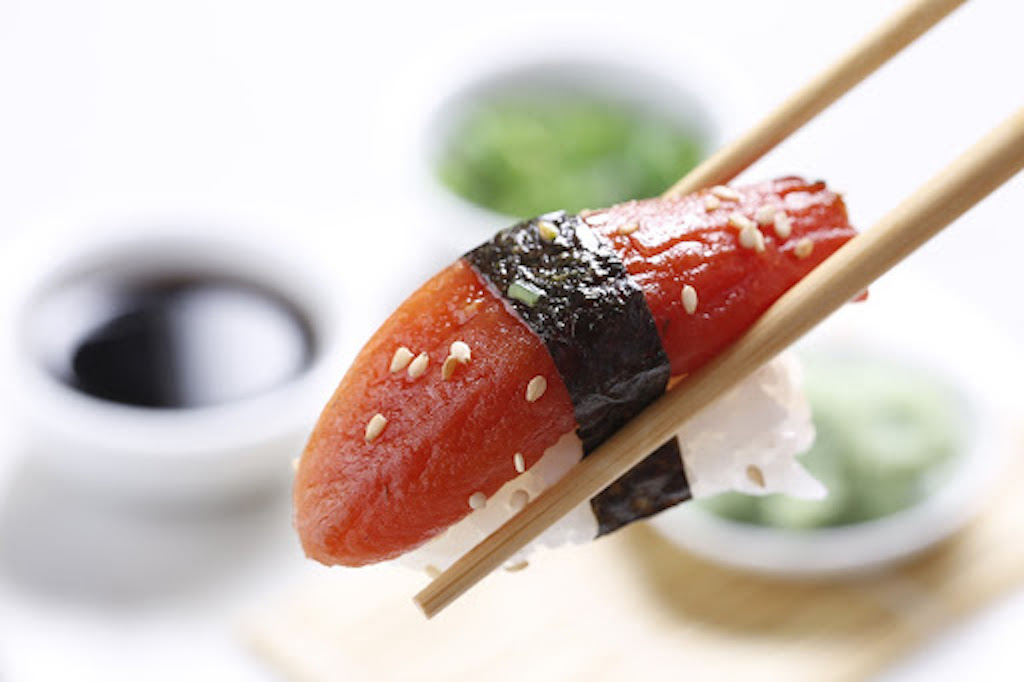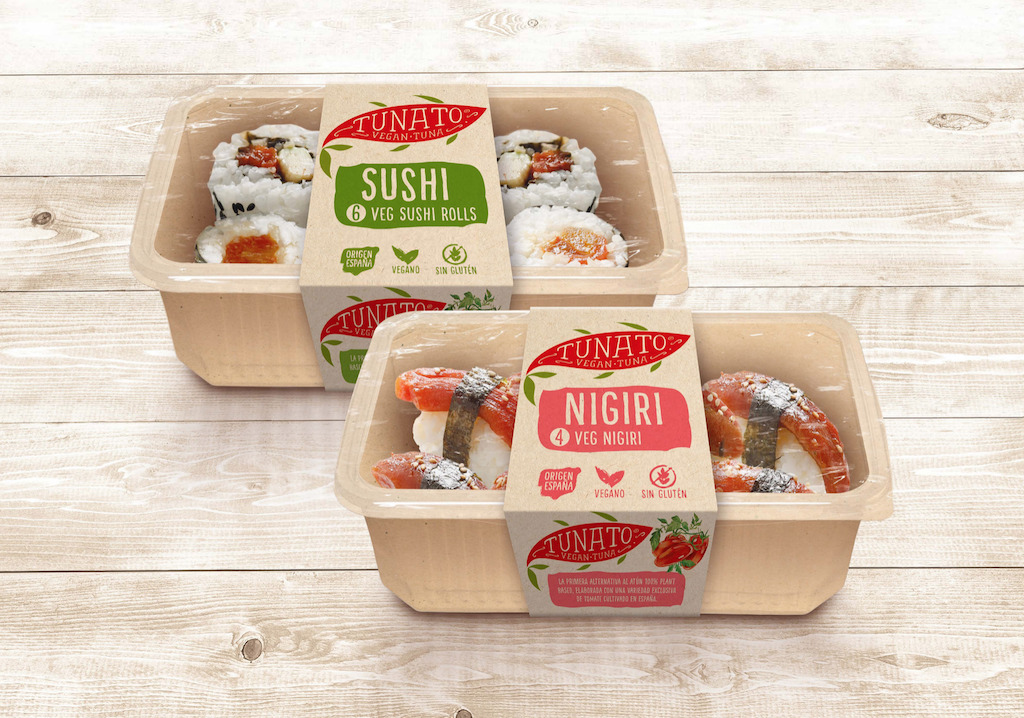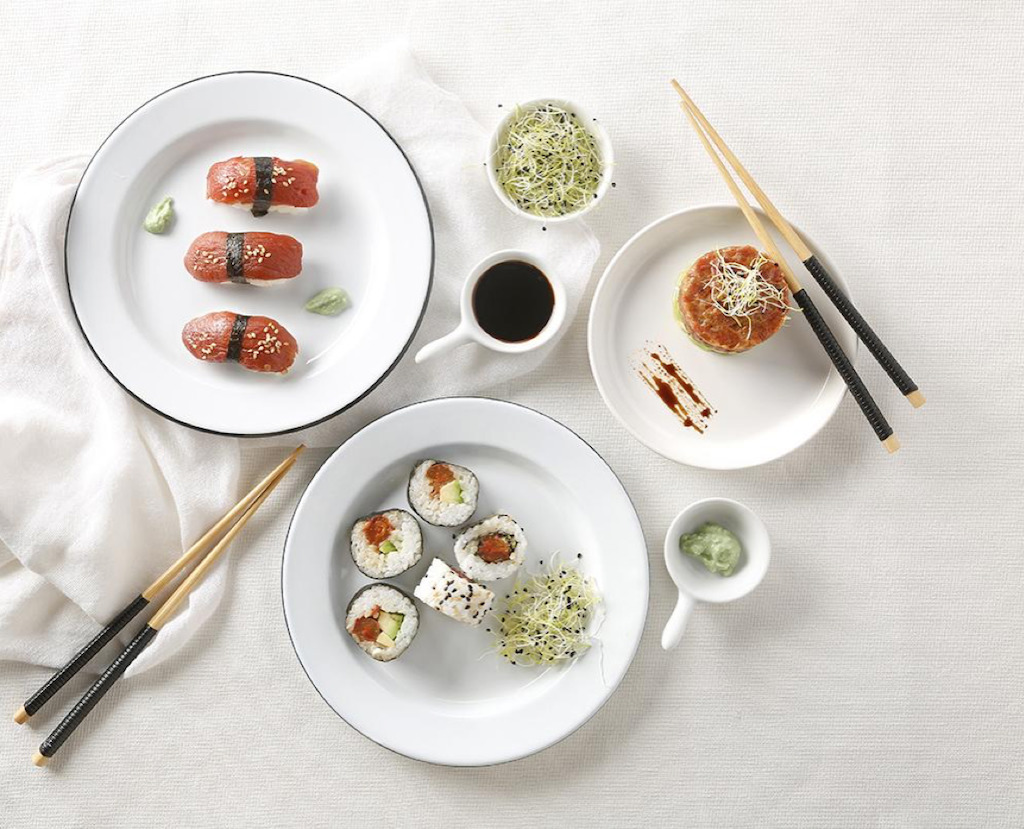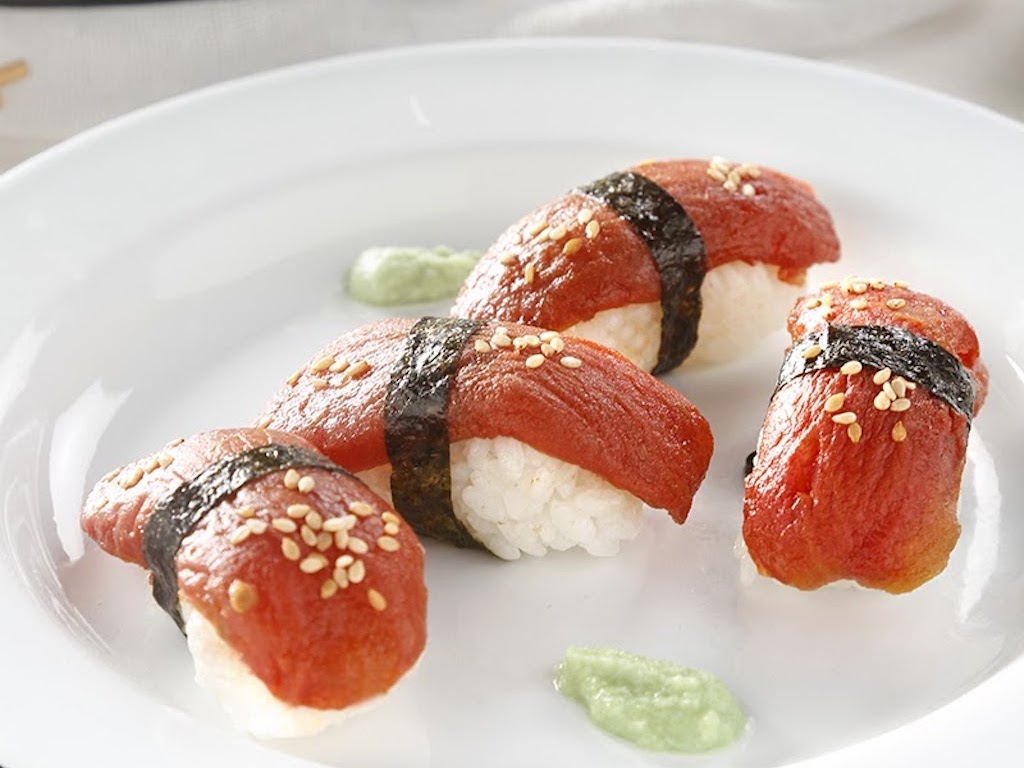5 Mins Read
With public awareness about the impact of fishing at an all-time high, more consumers are now turning to vegan alternatives. Like other plant-based products on the market, seafood analogues often feature soy or wheat protein. But one Spanish startup wants to do things a little differently. They’re mimicking seafood using tomatoes.
Aptly named Mimic Seafood, this food tech is making vegan raw tuna using tomatoes with just four other ingredients. Based out of Madrid, the company was founded back in 2018 by Pedro Álvarez and Apolinar Amador, two food industry veterans, and created in the -ivoro Food Innovation Hub incubator.
Later on, the co-founding team expanded with Silvia Morena and Ida Speyer. Now, the startup is running at full speed to launch its vegan seafood into more markets and take advantage of the demand surge.
Developing vegan ‘Tunato’
Mimic Seafood’s flagship product is Tunato, a tomato-based vegan tuna analogue. It’s made from tomatoes, olive oil, soy sauce, and algae extract, and is designed to replicate raw cuts of sushi-grade tuna.
We use these ingredients to achieve the smooth, flavourful profile of tuna loins.
Ida Speyer, Co-Founder & CEO, Mimic Seafood

“We use these ingredients to achieve the smooth, flavourful profile of tuna loins,” co-founder and CEO Speyer told Green Queen Media. “And a combination of spices to ensure a great culinary experience.”
Then, Mimic Seafood draws out the water content to create the tuna-like texture that consumers desire. This water doesn’t go to waste–the startup uses it for another product, a 100% plant-based salmon roe.
Mimic Seafood’s plant-based tuna has already landed in its domestic market in Madrid and Barcelona, launching through foodservice. Speyer says that diners already love their tomato-based alternative.
“We have been received very well. Just before Covid, we had our first restaurant clients and we had great feedback from them. We have also held tastings with partners and clients from other projects, and the response has been overwhelmingly positive.”
Rapid expansion on the horizon
At present, the startup is still bootstrapped. They’ve also benefited from the network of -ivoro Food Innovation Hub. But Mimic Seafood has big plans ahead, and they’re now looking for funding to scale up its operations.
“We’re going into a phase soon where we plan to expand rapidly,” Speyer told us.

Having already established a footprint in the two Spanish cities, Mimic Seafood is looking to enter more markets. They have a team based in Denmark, so the country is a “natural place for us to start” and it wants to enter the market before the end of 2021.
We’re going into a phase soon where we plan to expand rapidly.
Ida Speyer, Co-Founder & CEO, Mimic Seafood
Beyond Spain and Denmark, the startup “definitely wants to offer our products in more countries” once it reaches scale. While they initially launched via foodservice, Mimic Seafood says that retail is also on its roadmap.
“We know that supermarkets are increasingly offering ready meals with sushi and poke bowls, both of which are perfect applications for Tunato,” Speyer explained.
Clean label seafood
As well as expanding its distribution, Mimic Seafood wants to develop more seafood alternatives as well. They plan on expanding their range with different types of fish analogues, but they’ll all bear the same clean label qualities.
“All [are] very natural with short labels and clean flavours,” Speyer said. This direction is a clear nod to the growing base of health-conscious consumers in search for nutritious, clean ingredient lists.
The startup was sparing with its details for specific products on the pipeline. What they did reveal to us was that they won’t be designed for the same applications.
“Some of the products will be different in the sense that they won’t be aimed at sushi and poke, like our first products have been,” said the CEO.

Another startup creating fish-free products without any legume-based proteins is Ocean Hugger Foods. It is based in New York and have developed Ahimi, a tomato-based raw tuna product, and an eggplant-based unagi eel analogue called Unami.
Plant-based seafood demand surge
One of the reasons why Mimic Seafood is now eyeing a drastic expansion is because of the growing demand for vegan food. Plant-based seafood, in particular, is a sector poised for exceptional growth.
We need to keep the conversation going to enable consumers to make choices that reflect their values.
Ida Speyer, Co-Founder & CEO, Mimic Seafood
Cultural factors, such as the release of the controversial documentary Seaspiracy have raised alarm bells over the environmental toll of commercial fishing. In response, more consumers are now looking for sustainable vegan offerings.
“There is an overall move towards more sustainable and healthy food options,” shared Speyer. “While it’s hard to tell how much of the growth can be attributed to Seaspiracy, what we do know is we need to keep the conversation going. To enable consumers to make choices that reflect their values.”
Read: Seaspiracy – makers behind Cowspiracy expose fishing industry destruction
Plant-based seafood is also still very much a white space in the alt-protein industry. While seafood features heavily in European cuisines, especially in Spain and across the Mediterranean, much of the innovation so far has been on beef burgers or sausages.
“That’s why we’re taking our Mediterranean approach to seafood,” Speyer told us. “The highest possible quality and uncompromising flavour. We hope more people realise you can be perfectly healthy without animal protein.”
All images courtesy of Mimic Seafood.




